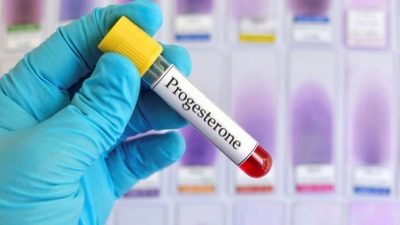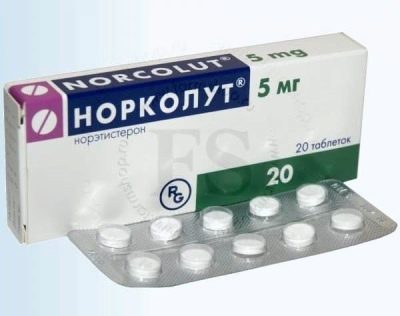Injections and progesterone drugs in early pregnancy
The level of progesterone in the very early stages of childbearing is an important indicator affecting the prognosis of pregnancy. The lack of this hormone can lead to miscarriage, fetal death of the baby.
To prevent this, sometimes there is a need to save pregnancy with drugs containing progesterone. This material will talk about what drugs and how are prescribed to women in the early stages.
The need for treatment
Progesterone levels increase during pregnancy, and this is no accident. This steroid hormone contributes to the normal carrying and development of the crumbs. From the first hours after fertilization, he begins to “prepare” the uterus for the next week's implantation of the ovum. It softens the endometrium, makes it looser, so that the fertilized egg can be fixed more easily.
Under the influence of progesterone tightly closed cervix, preventing the exit of the embryo, the cervical canal is filled with thick mucus, which protects the baby from penetration of microbes and viruses into the uterus.
Progesterone carefully preserves the fruit. It suppresses maternal immunity, which can only regard a half-related embryo as a foreign object and reject it.
The hormone takes on the condition of the muscles of the uterus, it relaxes the muscles, preventing the appearance of increased tone, which can lead to the onset of a miscarriage.
The physical growth of the main genital organ of the expectant mother is also due to the large amount of progesterone in her blood. Progesterone stimulates the expectant mother's appetite, participates in the formation of some fetal tissues.
Lack of a hormone is determined by a blood test, which can be prescribed if a woman has previously had a miscarriage, missed pregnancies, if she could not get pregnant for a long time, and also in the event of an early threat of termination of pregnancy. If the reason lies in the insufficient level of the hormone, it is prescribed as part of a therapeutic course.
By itself, reduced progesterone is the reason for the appointment of preliminary examinations. A woman is doing an ultrasound scan to make sure that a low level of the hormone is not associated with an ectopic or frozen pregnancy, in which treatment can only be prompt. If the fetus is alive, shows a heartbeat, the fertilized egg grows by weeks, it makes sense to save the baby.
Hormone levels increase gradually. In the early terms in the first trimester, its rate is 9-10 ng / ml - 46-47 ng / ml. Reduction is the basis for more careful monitoring of the future mother.
Drug List
The pharmaceutical industry can offer a fairly large list of progesterone drugs for pregnant women in the early stages of childbearing. They are available in different dosage forms, including progesterone shots, pills, vaginal suppositories, as well as creams and gels for external use.
Sometimes the drug is prescribed independently in one form, for example, in tablets, sometimes it is used in a complex manner - tablets and injections at the same time.
The main active substance can be natural, and can be synthesized in the laboratory. Natural progesterone can cause unpleasant side effects. It affects the liver, psyche, digestion, and also increases blood clotting, making it more "thick." From this point of view, preparations containing synthetic progesterone are more preferable for pregnant women.
Tablets and capsules
"Pregnin"
Do not confuse this drug with "Pregnancy", which contains the hormone hCG. "Pregnin" - This is a synthetic analogue of progesterone. The drug is taken both at the planning stage of pregnancy, and after conception took place with a deficit of its own progesterone.
Tablets are placed under the tongue and dissolve two or three times a day. The dose is determined by the doctor. This is usually 0.01-0.02 g, but this amount can be increased with a strong threat of miscarriage to 0.05-0.06 g.
In one pill - 0.01 g of substance. Side effects of pills can be quite unpleasant for the expectant mother - the development of edema and increased blood pressure.
Norkolut
At the heart of this drug is the hormone norethisterone, the action is very similar to progesterone, they even belong to the same group of prostagens. The drug during pregnancy try to prescribe only in one case - if there is a threat of miscarriage.
How norethisterone affects the fetus, science is not known for certain, because such tests have not been conducted. The dose of medication at risk is determined by the doctor. The tool is available only in tablets.
Unauthorized reception "Norkolut" can lead to the opposite effect - the occurrence of vaginal bleeding and the loss of a child.
"Duphaston"
The composition of these pills included another representative of the group of prostagens - the hormone dydrogesterone. The drug is very widely used in obstetrics and gynecology, it is used in the treatment of infertility, as well as to save the pregnancy with a threatening miscarriage in the early stages.
In the event of an acute threat of interruption (the appearance of pain and discharge from the genitals), up to 4 tablets (40 mg) are given once, and then every 8 hours a woman is required to take 1 tablet (10 mg) before the negative symptoms disappear. In this mode, the drug is drunk for a week, and then the dose is gradually reduced.
If miscarriage of a woman is habitual, there are several miscarriages in history, the doctor will recommend taking Duphaston in a fixed dosage of 2 tablets per day throughout the first trimester, up to 20 weeks. Cancellation is allowed only with the permission of the doctor, including after the IVF.
"Utrozhestan"
The composition of the capsules is progesterone. The capsules themselves, according to the manufacturers, can fulfill the role of vaginal suppositories if administered intravaginally. Inside the capsule is taken with plenty of water twice a day. The total dosage with a deficiency of its own progesterone is about 200-300 mg.
With the threat of miscarriage, vaginal use of the drug is often prescribed - capsules are administered twice a day, the total dosage of 200-400 mg per day. “Utrozhestan” can be taken in the first and second trimesters of pregnancy; in later periods, the agent is not prescribed.
Creams and gels
Progestogel (gel). The main active ingredient is progesterone. The drug is used exclusively externally. The system does not have a systemic effect; it affects only at the rubbing point. The gel is allowed to use in the first trimester of pregnancy with tenderness of the mammary glands, their excessive swelling. The application must necessarily be agreed with your doctorbecause the effect of the gel on the fruit of science is still unknown.
Injection solutions
"Progesterone". For injections used oil solutions of the hormone at a concentration of 1% and 2.5%. The dose required to maintain pregnancy in the background of a deficit of its own hormone, is determined by the doctor. This is usually 2.5 ml if a solution of 1% is taken, or 1 ml of a solution with a concentration of 2.5%.The injection site for some time after the procedure hurts.
The drug is prescribed in the first trimester. If the woman’s miscarriages are habitual, then the drug is made continuously during the first four months of gestation, starting from 2-3 weeks of pregnancy.
Recommendations to expectant mothers
You can not self-prescribing progesterone drugs, they must be prescribed and dispensed by a doctor.
Do not exceed the recommended dose, it can lead to overdose and loss of pregnancy.
All drugs that contain progesterone or other prostagens are contraindicated in women with kidney, liver, hepatitis, and cirrhosis. Do not use such drugs in the event that the future mother has a tendency to thrombosis - blood platelets are elevated, blood clotting is impaired.
Taking progesterone drugs is often accompanied by side effects such as increased drowsiness, mild dizziness. With long-term admission episodic bleeding from the genitals is possible. Usually, this problem is solved by increasing the dose of the medicine, but it is very dangerous to take this decision yourself.
Means based on progesterone may somewhat reduce the desire for sexual relations, this is also not surprising, especially since when threatened with miscarriage, sex is often contraindicated.
If a woman takes diuretics at the same time, as well as drugs that increase blood clotting, this should be notified to the doctor, because progesterone at times increases their main effect, which is not always desirable.
The hormone affects the mental state of a woman. She may experience mood swings, apathy, delayed reactions. Therefore, future mothers who work in conditions of increased danger, as well as women who drive cars, should be extremely careful. It is advisable at the time of treatment of progesterone to refuse to drive a car and reduce the workload.
Most pregnant women are prescribed progesterone tablets and capsules. In second place is the vaginal way of using some of the above medicines.
Only two out of ten women in need of increased hormonal levels are recommended medication in the form of injections. In most cases, injections are combined with vaginal administration of drugs.
The obstetrician-gynecologist will tell you about the real purposes of determining progesterone during pregnancy, as well as the indications for prescribing progesterone for pregnant women in the next video.
























